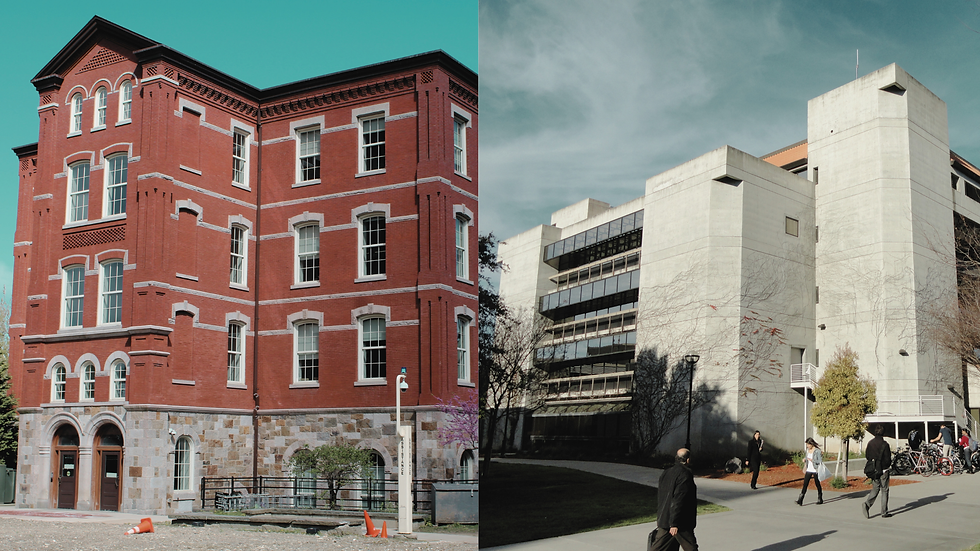Chinese-Australian Scholar Given Suspended Death Sentence Amid Increasing Direct Control Over University Campuses
- Endangered Scholars Worldwide
- Feb 15, 2024
- 3 min read
Updated: Mar 27, 2025

Photo Credit: CNN
On February 5, 2024, a court in Beijing, China handed down a suspended death sentence to Chinese-Australian writer, journalist, and scholar Yang Hengjun. A suspended death sentence refers to an automatic conversion to 25 years or life in prison following two years of “good behavior”. Dr. Yang was first detained by the Chinese authorities on January 23, 2019, on espionage charges during a visit back to China from the United States with his family. Since then, Dr. Yang has been detained despite needing medical attention for his deteriorating health.[1] In May of 2021, he was tried in a secret one-day trial in which the verdict was not released to the public.[2] To this day, details of the charges have not been made public, including which country he was convicted of spying for. Dr. Yang denies the espionage claims.
Dr Yang began his career as an officer for the Chinese state and eventually moved on to cultivating an online follower base both on his blogging website and WeChat where he advertised for his classes, some of which were on living and studying in Western countries, and others covering his “thoughts on history, economics, culture and politics.[3] In his writings and blog posts, Dr. Yang has openly criticized the Chinese government for violating human rights. At the time of his arrest, Yang was a visiting scholar at Columbia University, New York. Although he had reportedly avoided directly targeting the Chinese government and the Chinese Communist Party (CCP) in his recent statements and texts, he was still targeted by the Chinese authorities. His friends and family believe that Dr. Yang is being persecuted for his advocacy for democracy, human rights, and the rule of law. The head of the Human Rights Watch in Asia, Elaine Pearson, has also voiced opposition to the ruling and the arbitrary detention of Dr. Yang.[4]
Endangered Scholars Worldwide (ESW) has been monitoring the political persecution of academics within People’s Republic of China. Dr. Yang’s case parallels that of other academics, especially those of Uyghur descent and those criticizing the policies of the Chinese government towards the Uyghur people, who have also been subject to unjust death and life sentences. Examples include Rahile Dawut, a scholar of Uyghur folklore, who has been detained at least since 2019 for endangering state security.[5] According to a 2021 report by the Uyghur Human Rights Project, at least 312 Uyghur intellectuals including students, scholars and writers remain incarcerated in the Xinjiang region.[6]
Aside from directly targeting dissident academics, the Chinese government has also been tightening its grip over universities, in open violation of the principle of university autonomy. According to a recent article published by Times Higher Education, the CCP has been increasing its direct control over universities by merging university administrations with Party Committee Offices. Some academics with experience in teaching at Chinese universities have asserted that this fusion between party committees and university administrations already existed in reality, with decisions being taken in common between the two offices. In some universities like Peking and Tsinghua University, the office of party secretary and university president have been occupied by the same person.[7] Nevertheless, it is still significant that the Chinese government is giving up on even the most symbolic gestures of commitment to academic freedom and university autonomy. This means that centralized control over universities will likely increase in the near future, posing further limitations on academic freedom.
ESW is deeply concerned with the increasing pressure placed on academics and universities campuses and condemns the ongoing human rights violations in China including the repression of free speech and restrictions on academic freedom. We call upon the Chinese judiciary and government to immediately release Dr. Yang Hengjun and all other academics who remain unjustly imprisoned for exercising their right to free expression. ESW further calls upon all international organizations, academic and professional associations, and other groups and individuals devoted to promoting and defending human rights to protest and condemn the continued abuse of scholars and researchers by the Chinese authorities.
Sources and Further Reading:




